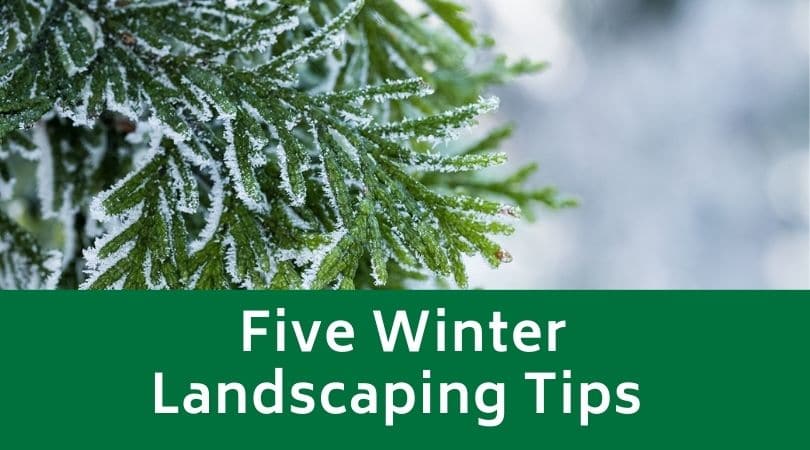
Winter is approaching, and you want to keep your landscaping as neat and healthy as you can all year. To do this, there are several steps you can take in preparation for the cooler weather. Following our top five winter landscaping tips will ensure that you get a landscape that you can be proud of any time of the year.
Tip One – Know Your Hardiness Zone
Although this sounds like something you should automatically do, you’d be surprised at how many people skip knowing their hardiness zone. You want to find out what it is and pick out plants that thrive in that specific zone. Don’t be tempted to keep a zone five plant in your zone seven backyard. Unless you have a microclimate that will allow less hardy plants to thrive, you want to stick to shrubs, trees, and plants especially suited for your zone. This is especially important if you live in a climate with a harsh winter.
Tip Two – Wrap Newly Planted and Young Plants
During the winter, any newly planted and young trees need a little more protection to survive. If you leave thin-barked trees like maple, linden, and ash unprotected, they can end up with sunscald and frost cracking. Additionally, younger trees make the perfect meal for rodents, weakening, or killing the tree. Wrap the tree from the bottom up with burlap or thick paper tree wrap. You can also use a corrugated tube. When the tree begins to show growth signs, remove these protective measures. These protective measures can prevent frost cracking and rodent damage.
Tip Three – Avoid Using Salt-Based De-Icing Products
During the winter, you’ll eventually get ice. However, using a salt-based de-icing product is one easy way to kill your landscaping plants and your grass. Your plants can absorb the salt through the roots or leaves, and this salt absorption will make the tissue dry out by pulling moisture from the plant. Instead, try to use sand instead of salt-based products. If that doesn’t work, you can try a deicer that is potassium or calcium-based and see how it works for you. It may take a little longer, but it’s better for your yard.
Tip Four – Mulch
Many people mulch in the spring months to help your plants retain moisture, but mulch is also essential in the fall and winter months. Mulch can help insulate the ground and protect your plant’s roots from bitterly cold weather or frost. It stops the soil from going through a cycle of repeatedly freezing and thawing, and this is better for the plants. Put down three or four inches of mulch after the first freeze. Don’t get too close to the trunks or stems of your plants.
Tip Five – Water
A lot of gardeners stop watering in the winter, and this can hurt any evergreen plants you have. If you don’t water them enough, the evergreens will quickly deplete their water stores. When this happens, they become more prone to death and winter burn. Water them deeply several times a week before the ground freezes. Once it freezes, you can cut back on your watering.
Contact Evergreen Landscaping
If you’d like to know more about winter landscaping tips, contact us. Our friendly and professional staff are standing by and ready to help in any way they can.
